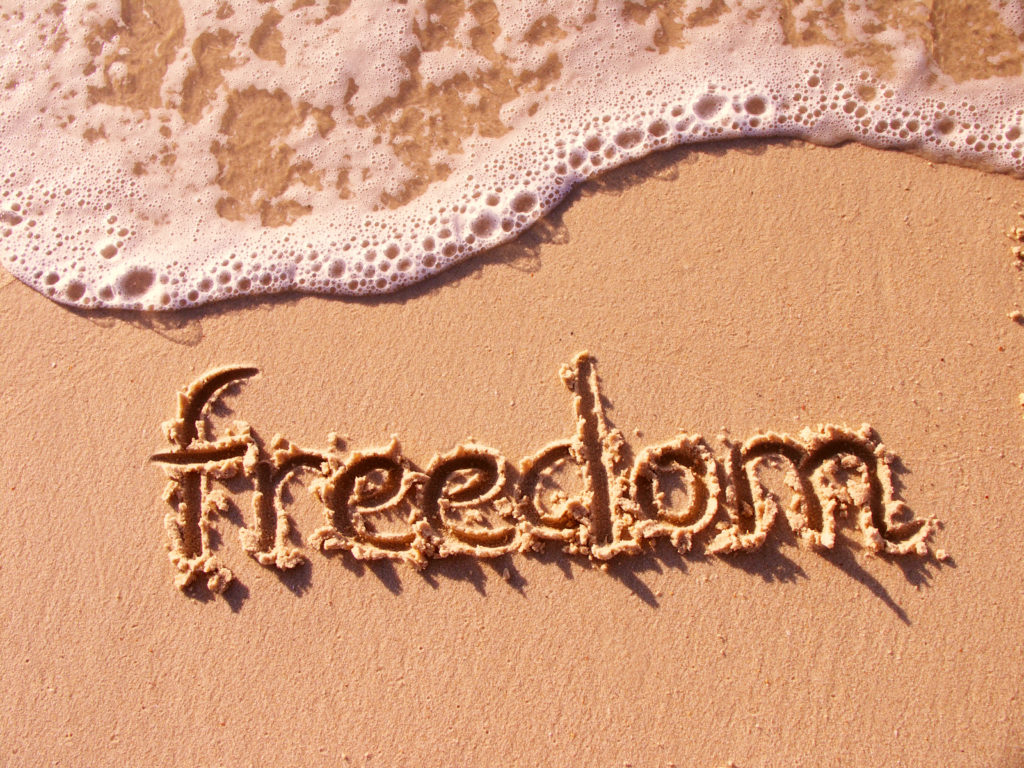To be human means to desire to be free. We all desire to have choice and agency over our lives. A common challenge for many people is when we feel we are being restricted or hindered from expressing that freedom to determine the trajectory over our own lives. This may happen by working a job we don’t like, a physical condition that limits our activities and movements, or for many struggling with anxiety, depression and other mental health issues, it can take the form of feeling like our emotions and mood are outside our control. Often when we experience depression, there is a sense of feeling stuck. Depressed people will report having little agency or ability to control the elements in our lives, and resign themselves to fate. It is why one of the markers of depression that people report is that of hopelessness, the inability to believe and move forward towards goods or goals because it seems like they are unattainable.
In existential philosophy there is a strong focus on individual responsibility and choice. This line of thinking has since been taken up by therapists as a way to help clients come to see the range of choices one has. Philosopher Heather Reid writes, “to fail to acknowledge that we have a choice is to fail to take responsibility for the choices we make”. While there are certainly many things outside of our control, we have to take account of our desire for freedom, but also the various ways that we do express and demonstrate that freedom even if our lives are not going the way we hoped they would. Athletes make this choice all the time when they enter their sporting contest. No athlete gets to choose what rules to follow and which ones they won’t. Their freedom is limited by the nature of the game, you can’t cross this boundary, or in order to score points you must achieve this outcome etc. Despite their inability to choose what the rules are, they have accepted their limitations and chosen to perform with a sense of freedom within the parameters of the game.
This leads to point number two, freedom for excellence. As opposed to the concept of freedom from rules/limitations/etc. freedom for excellence is the pursuit of excellence in a given field which requires the adherence to rules/laws/limitations. Freedom for excellence is the process of submitting to rules and laws and teachers to help you practice and develop habits that allow you to perform the task well and almost as second nature. When a musician practices her scales over and over again, focuses on “proper” breathing techniques and finger position, she now has become disciplined to play a challenging piece of music that the rest of us who don’t practice can’t. And once we have submitted to these rules and teachings, the performer actually has the ability to create and be free within the performance. Seeing a musician, dancer, or gymnast perform a rehearsed routine at the highest level is a form of freedom, as they can move and use their body to create beauty that many others cannot.
Yes we all desire freedom, and freedom from illness, depression, or a job that seems to lack meaning are good things to desire. When we only focus on freedom from the absence of restrictions though, we miss out on the potential to first take responsibility for our lives about how we will be and secondly to embrace rules/limitations to find a potential freedom of expression within those boundaries. This isn’t simple wishful thinking, or saying I’m going to choose to not be anxious or depressed, but it is the foundation for a mental framework that will allow you have the choice of how you will respond to your circumstances and see the potential for beauty and creativity even in hard circumstances.
